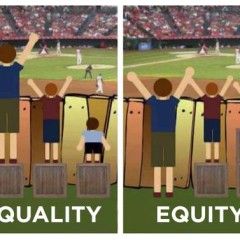Educators are aware of 21st-century skills required for students such as critical thinking, creativity, collaboration, communication, technology literacy, flexibility, leadership, and social skills. However, what about 21st-century skills educators must possess?
Often this school of thought is overshadowed by the concentrated focus on student learning. Current educators need to develop, practice, and implement skills like social justice pedagogy, intersectionality, culturally responsive teaching, and implicit bias. Developing new skills will take time and mental reconfiguration of what teaching has become in the 21st century, but where to begin? Social justice would be a great starting point.
Social justice can be defined as seeing students for who they are and where they come from, as well as providing each student with an equitable distribution of educational supports or resources that allow the student to feel safe and secure. At times it may seem easier to emphasize what social justice is not.
Continue reading